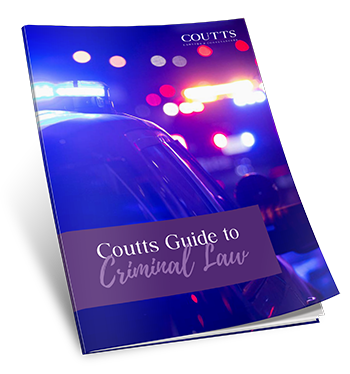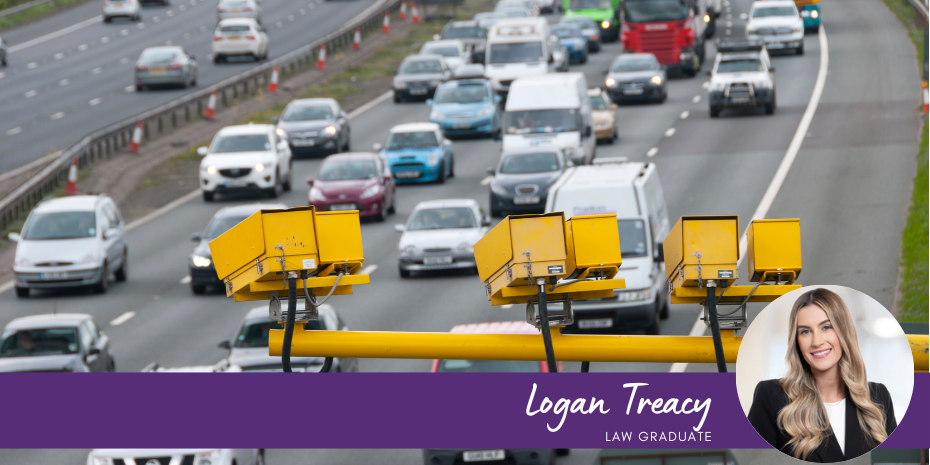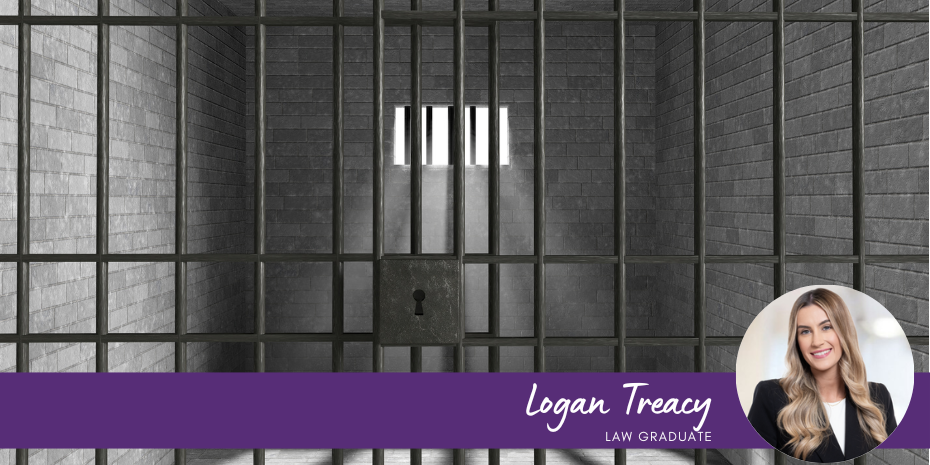Our Traffic Lawyers Have Got You Covered

Luisa Gaetani
Partner
Book Your Traffic Offence Lawyer Consultation Now
Navigating Traffic Offences
At Coutts Lawyers & Conveyancers, our Traffic Offence Lawyers understand the importance of holding a driver’s licence and the impact a conviction may have on your future. Our Traffic Lawyers have experience in dealing with a wide range of traffic matters, including:
- Drink driving
- Driving whilst license suspended/disqualified
- Negligent driving/dangerous driving
- License appeals
- Police pursuit
- Driving under the influence of drugs (DUI)
For an understanding of the possible penalties available to you for driving offences, refer to the RMS website.
Penalties
There is a range of penalties available to the Courts in New South Wales, which include the following:
- Dismissal under Section 10;
- Conditional Release Order;
- Section 10A;
- Fines;
- Imprisonment;
- Community Corrections Order;
- Deferral of sentence;
- Suspended sentence;
- Intensive Correction Order.
Section 10 Dismissal
A dismissal under Section 10 of the Crimes (Sentencing Procedure) Act 1999 allows the accused to avoid a criminal record but allows the Court to register a finding of guilt. A “Section 10” can be made by the Court with or without a condition, such as a good behaviour bond, or Conditional Release Order as they are now known. When this occurs, the conviction becomes “spent” as soon as the condition expires, which means that the accused will not have a criminal record. However, in some circumstances, the accused person may still need to disclose the finding of guilt, for example, if the national police check is made for immigration or in certain employment situations.
Section 10A
Similarly, to Section 10, Section 10A of the Crimes (Sentencing Procedure) Act 1999 allows for the Court to register a conviction without requiring any further penalty. This is most used in circumstances where the Court decides to disqualify a person from driving, which can only occur once a conviction is recorded.
Community Corrections Orders
Under the Crimes (Sentencing Procedure) Act 1999 a penalty available to the Court is a Community Correction Order, formerly known as community service. The length of time that a person must adhere to the community correction order can be specified by the Court but must not exceed 3 years. Under Section 88 of the Crimes (Sentencing Procedure) Act 1999 two standard conditions must always be included, which are that the offender must not commit any offence and that the offender must appear before the court if called on to do so at any time during the term of the community correction order. It is then open to the Court to impose additional conditions such as:
- A curfew condition imposing a specified curfew (not exceeding 12 hours in any period of 24 hours),
- A community service work condition requiring the performance of community service work for a specified number of hours (not exceeding 500 hours or the number of hours prescribed by the regulations in respect of the class of offences to which the relevant offence belongs, whichever is the lesser),
- A rehabilitation or treatment condition requiring the offender to participate in a rehabilitation program or to receive treatment,
- An abstention condition requiring abstention from alcohol or drugs or both,
- A non-association condition prohibiting association with persons,
- A place restriction condition prohibiting the frequenting of or visits to a particular place or area,
- A supervision condition requiring the offender to submit to supervision- by a community corrections officer, except as provided by subparagraph (ii), or if the offender was under the age of 18 years when the condition was imposed, by a juvenile justice officer until the offender has reached that age.
Fines
It is open to the Court to impose an Order upon a convicted person to pay a fine, either as the only penalty of their sentence or as part of their penalty in conjunction with another penalty. The maximum fine for an offence is usually specified in the legislation containing the offence and is often prescribed as a maximum amount of penalty units, for example, 50 penalty units. In New South Wales at present, each penalty unit represents $110 (Section 17 of the Crimes (Sentencing Procedure) Act 1999. Therefore, where an offence has a maximum penalty of 50 units, this equates to $5,500.
Intensive Corrections Order
Section 66 (1) of the Crimes (Sentencing Procedure) Act 1999 states that community safety must be the paramount consideration when the sentencing court is deciding whether to make an intensive correction order in relation to an offender. When considering community safety, the sentencing court is to assess whether making the order or serving the sentence by way of full-time detention is more likely to address the offender’s risk of reoffending (Section 66 (2) of the Crimes (Sentencing Procedure) Act 1999).
Section 67 of the Crimes (Sentencing Procedure) Act 1999 provides that an intensive correction order must not be made for any of the following offences:
- Murder or manslaughter,
- A prescribed sexual offence,
- A terrorism offence within the meaning of the Crimes Act 1914 of the Commonwealth or an offence under section 310J of the Crimes Act 1900,
- An offence relating to a contravention of a serious crime prevention order under section 8 of the Crimes (Serious Crime Prevention Orders) Act 2016,
- An offence relating to a contravention of a public safety order under section 87ZA of the Law Enforcement (Powers and Responsibilities) Act 2002,
- An offence involving the discharge of a firearm,
- An offence that includes the commission of, or an intention to commit, an offence referred to in paragraphs (a)–(f),
- An offence of attempting, or of conspiracy or incitement, to commit an offence referred to in paragraphs (a)–(g).
Conditional Release Order
Under Section 9 of the Crimes (Sentencing Procedure) Act 1999 the Court may decide to record a conviction on the accused’s criminal history but release them with no further penalty. The Conditional Release Order will contain two standard conditions as prescribed under Section 98 of the Crimes (Sentencing Procedure) Act 1999, which are that the offender must not commit any offence and that the offender must appear before the court if called on to do so at any time during the term of the community correction order. It is then open to the Court to impose further conditions including the following, listed under Section 99 (2) of the Crimes (Sentencing Procedure) Act 1999:
- A rehabilitation or treatment condition requiring the offender to participate in a rehabilitation program or to receive treatment,
- To abstain from alcohol or drugs or both,
- A non-association condition prohibiting association with particular persons, A place restriction condition prohibiting the frequenting of or visits to a particular place or area,
- A supervision condition requiring the offender to submit to supervision by a community corrections officer. If the offender was under the age of 18 years when the condition was imposed, by a juvenile justice officer until the offender has reached that age.
A Conditional Release Order, in accordance with Section 99 (3) of the Crimes (Sentencing Procedure) Act 1999 can not include any of the following:
- Home detention;
- Electronic monitoring;
- Curfew;
- Community service.
Imprisonment
Imprisonment is to be considered by the Court as a last resort. Section 5 of the Crimes (Sentencing Procedure) Act 1999 states that “a court must not sentence an offender to imprisonment unless it is satisfied, having considered all possible alternatives, that no penalty other than imprisonment is appropriate”.
The Court must first set a non-parole period or minimum term of imprisonment under Section 44 (1) of the Crimes (Sentencing Procedure) Act 1999. The balance of the imprisonment term set by the Court must not exceed one-third of the non-parole period under Section 44 (2) of the Crimes (Sentencing Procedure) Act 1999. In other words, the non-parole period must be at least three-quarters of the total imprisonment term unless there are special circumstances that justify otherwise.
If the Judge considers that the matter is sufficiently serious, or that the character of the offender is such that requires the Court to do so, the Court can decline to set a non-parole period under Section 45 of the Crimes (Sentencing Procedure) Act 1999.
Deferral of sentence
A Court, in certain circumstances, may choose to defer sentencing under Section 11 of the Crimes (Sentencing Procedure) Act 1999. Following a finding of guilt, the Court may decide to defer its decision on a sentence for the following reasons:
- To assess the offender’s capacity and prospects for rehabilitation, or
- To allow the offender to demonstrate that rehabilitation has taken place, or
- To assess the offender’s capacity and prospects for participation in an intervention program, or
- To allow the offender to participate in an intervention program, or for any other purpose, the court considers appropriate in the circumstances.
The Court will impose bail conditions on the offender for the period of deferral, which may include orders that the offender attend a rehabilitation program, regularly report to a Police station, reside in a rehabilitation facility while receiving treatment, attend counselling or any of the other available bail conditions. If the offender breaches any of those conditions, a warrant will be issued for their arrest. Once the offender is back before the Court, the Court may choose to immediately proceed to sentencing.
Checklist
- If you are arrested, or approached by Police, you are obliged to provide your full name, date of birth and address for the purposes of confirming your identity.
- Seek legal advice before participating in an electronically recorded interview with the Police.
- If you have been charged with an offence, and receive a Court Attendance Notice, either in the mail or in person, seek independent legal advice before the first Court date.
What to Expect with Coutts Traffic Offence Lawyers
Step 1: Initial Contact
Reach out to Coutts Lawyers via our website, phone, or in person. Briefly describe your matter.
Step 2: Consultation Appointment
Schedule and attend a meeting with a Coutts Traffic Lawyer to discuss the specifics of your matter and desired outcomes.
Step 3: Information & Legal Advice
Share all related documents and information. Your lawyer will review everything, clarify aspects as needed, and then advise on the best action course.
Step 4: Action Plan Development
Based on the advice, an appropriate action plan will be formulated. This may involve communication, documentation processes, or further legal steps.
Step 5: Implementation
Execute the action plan, addressing a range of legal scenarios as necessary.
Step 6: Resolution & Closure
Navigate towards a resolution, with the path determined by the nature of the matter. Your Lawyer will outline any final actions or considerations.
Book Your Traffic Offence Lawyer Consultation
Introducing Luisa
Your Compassionate Lawyer
Meet Luisa, a Partner at Coutts Lawyers & Conveyancers, and an Accredited Family Law specialist. Luisa is the head of our esteemed Family Law & Criminal Law Team. Boasting over a decade of expertise, Luisa blends sensitivity with practicality, forging deep connections and trust with her clients. Her reputation as a foremost authority in Criminal and Family law is well-deserved.


Connect with Luisa Today
Multi Award-Winning
Law Firm

Traffic Offence FAQ’s
Yes, in some cases, the court may allow a dismissal under Section 10 of the Crimes (Sentencing Procedure) Act 1999, enabling the accused to avoid a criminal record even with a finding of guilt. Conditions, such as a good behaviour bond known as a Conditional Release Order, may be applied.
If you’re arrested or approached by Police for a traffic offence, you are obliged to provide your full name, date of birth, and address to confirm your identity. Avoid participating in an electronically recorded interview with the Police without seeking legal advice first. If charged with an offence, seek independent legal advice before the first Court date, and contact the Coutts Criminal Law team.
Penalties can range from fines to imprisonment, depending on the severity of the offence and any prior convictions. Other potential penalties include dismissal under Section 10, Conditional Release Orders, Community Corrections Orders, license suspension, disqualification and the imposition of an interlock device.
While it may not be legally mandatory, seeking independent legal advice is highly recommended before the first court date to understand the legal implications, potential penalties, and to prepare an appropriate defence strategy, especially considering the complexities of legal proceedings and the potential life impact of the outcomes.
Download your FREE Criminal Law Guide!



